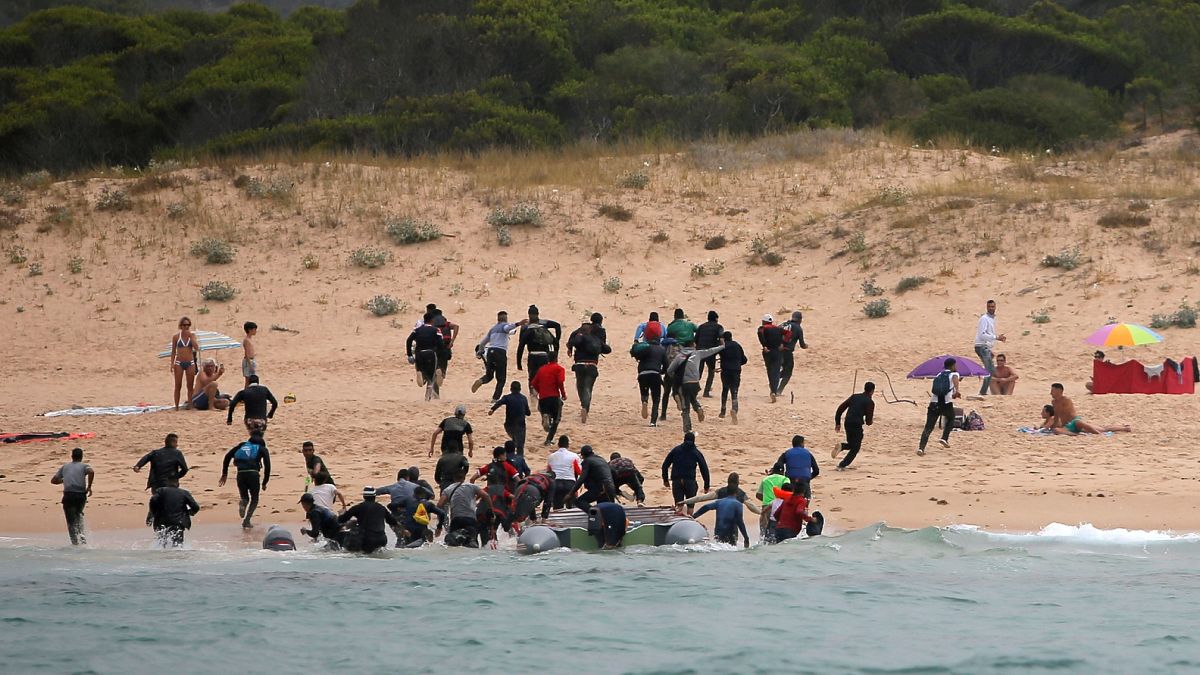With effective management mechanisms at a global and regional level, migration could be rendered a source of prosperity instead of a source of conflict.
By Eli Hadzhieva
The world’s eyes are turned to Morocco, which will be hosting the Intergovernmental Conference on the Global Compact for Safe, Orderly and Regular Migration on 10-11 December. This first global migration agreement, expected to be adopted by UN countries which agreed on the pact on 13 July, could potentially change the lives of almost 250 million migrants across continents.
Despite the populistic discourse in some member states, the EU generally recognises the importance of the deal and has been strongly and continuously engaged in the process. In parallel, many initiatives have been recently taken to better control and manage migration flows in order to ensure human lives and respect of human rights at the EU level. A conference organised by the Brussels-based NGO European Foundation for Democracy this week sheds more light on these initiatives.
In particular, the EU stepped up financial actions towards Morocco and other Mediterranean partners in North Africa in July by earmarking €55m from its EU Trust Fund for Africa in order to train and better equip border guards, save lives at sea and fight against smugglers as part of its efforts to help the region prevent irregular migration.
In addition, the European Commission allocated €6.5m aimed at increasing EU assistance to refugees and vulnerable migrants, and supporting the 2015 Moroccan National Strategy on migration to improve access to basic services and their delivery. This more open migration strategy allowed for residency status for almost 50,000 applicants in several regularisation campaigns.
Furthermore, the EU signed agreements with Morocco in September on Green Growth and Competitiveness worth €150m and €9m, as well as the Social Protection programme worth €100m. With these programmes, the EU aims at helping Moroccan people creating new jobs, fostering innovation and start-ups as well as social protection.
The emergence of new migration routes made Morocco an indispensable partner for the EU, as Spain (surpassing Italy and Greece) attracted the highest number of new arrivals (some 49,000 asylum seekers as of 2018), who have used the western Mediterranean route via Morocco this year.
The EU and Morocco have cooperated on migration control since 2014. According to Moroccan authorities, 54,000 attempts to cross to Europe were foiled between January and the end of August this year, in addition to 65,000 attempts in 2017. Moreover, the Moroccan government announced that in 2018, security authorities dismantled 74 criminal networks that had been active in smuggling and human trafficking and seized more than 1,900 human trafficking vehicles.
Morocco is not only the EU’s privileged partner in the area of migration but also a strategic ally, especially when it comes to common challenges such as security and counterterrorism. As the only stable partner of the EU in a region torn by conflicts, the country has greatly contributed to the EU’s security and intelligence by helping preventing numerous terrorist attacks.
Since 1960, the EU and Morocco have developed a rich and diversified partnership, enjoying a high level of cooperation in areas ranging from fisheries and agriculture to security and development cooperation. Notably, the EU is Morocco's largest trading partner accounting for 59.4% of its trade in 2017, while Morocco is the EU’s 22nd biggest trading partner.
Being the first country in the southern Mediterranean region to be given an advanced status by the EU in 2008, Morocco is also a member of the African Union. Thus, it could be considered as a bridge to reach out to other African countries and to strengthen cooperation with them in areas such as geopolitical instability, demographic developments, climate change and socio-economic issues in order to reduce the root causes of migration
Humanitarian aid alone may not be sufficient to manage future crises. With effective management mechanisms at a global and regional level, migration could be rendered a source of prosperity instead of a source of conflict. The upcoming intergovernmental conference on migration taking place in Morocco therefore represents a great opportunity to establish a global framework to safeguard lives and human rights of migrants - and to avoid situations where they fall victim to abuse and slavery.
By assuming their moral and legal obligations, the EU member states should seize this opportunity instead of ceding to populist and anti-immigrant voices.
Eli Hadzhieva is founder and director of Dialogue for Europe, a Brussels-based NGO.
Opinions expressed in View articles are solely those of the authors.
